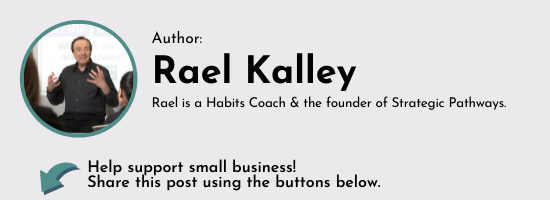I recently happened upon an interview with the CEO of one of the largest companies on the planet. You probably saw the same interview. It was big news.
I was just about to scroll on, when he said something that caught my attention and I remained riveted to the rest of the interview.
He said that there are many things necessary to happen for a company to be sustainably great, and to him there is one that stands out more than all the others. Without this quality, he believes, no company will ever achieve greatness.
He continued on to say if the senior management of a company wish to build a great, flourishing and growing organization – and sustain its greatness – they must learn to instil in their employees a passion for this one specific thing.
Discretionary Effort
Discretionary effort is defined as effort that is put forth for which there is no expectation of reward, and for which there is no fear of punishment or reprisal if not undertaken.
In other words, this is effort that we choose to deliver that is outside of any expectation or job requirement.
You do it, because you just want to do it.
He further explained that he believed that his biggest responsibility, and that of his most senior executives, is to create, perpetuate and sustain an environment of “I just want to” throughout his organization.
Easy to Define, Hard to Instill
His company works hard to maintain the culture they have so clearly articulated. It seems to be a culture of respect, politeness, honouring commitments, communication, clear expectations, positive reinforcement, personal growth and development, peer recognition, transparency, teamwork, unity and a clear focus on the common goal.
It’s a culture that does not tolerate rudeness, bullying, abuse, dishonesty, name calling, sexism, gossip, harassment, oversized egos, divas or any of the much errant behaviour prevalent in so many organizations.
He said there are two types of employees in the workplace – those who come to work willingly and those who come to work grudgingly. I wholeheartedly agree.
The willing employees feel they are a part of something. They have a sense of ownership in what they do and are excited about being a part of it. The grudging ones come to work because they have to.
The Minimum Maximum Rule
The willing employees deliver vast amounts of discretionary effort. The grudging ones live to what is called The Maximum/Minimum Rule. The maximum effort they will deliver is the minimum necessary to avoid drawing negative attention to themselves.
And people who love coming to work will always deliver discretionary effort.
He concluded by saying that there is a powerful business case to be made for companies to focus positively on their people first, before anything else.
Only people who feel motivated and appreciated will give their company the gift of their discretionary effort.
(Click to Tweet)
Till we read again.


